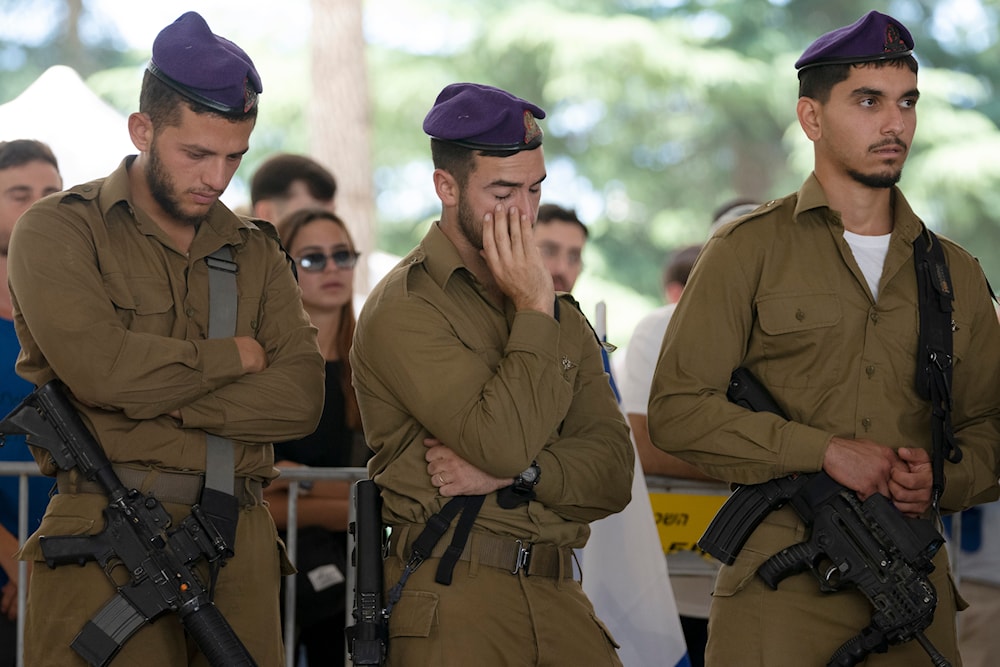Israeli media admits four soldiers killed from Givati Brigade
"Israel" acknowledges the killing of four soldiers from the Givati Brigade, killed on Monday during the ongoing battles in the Gaza Strip.
-

Israeli occupation soldiers from the Givati Brigade attend the funeral for Sgt. Yonatan Elias who was killed during battles in the Gaza Strip on May 31, 2024. (AP)
Israeli media acknowledged on Tuesday that four soldiers from the Givati Brigade were killed during battles in the southern Gaza Strip.
Israeli media detailed on Monday that the soldiers who were killed were a company commander with the rank of major, Tal Pshbilsky Shaulov, Sergeant Eitan Carlsbrun, Sergeant Almog Shalom, and Sergeant Yair Levin.
The Israeli occupation army announced that six other Israeli soldiers were injured in Rafah, south of the Gaza Strip, with five of them in serious condition.
The death of the four soldiers brings the total number of deaths among the occupation forces since the beginning of the war to 650 officers and soldiers, including 294 since the start of the ground invasion of the Gaza Strip on October 27, 2023.
Following an operation carried out by al-Qassam Brigades on Monday, in the Shaboura camp in the city of Rafah in the Gaza Strip, Israeli media reported that four Israeli occupation soldiers were killed in a building blown up by the Resistance, and 18 others were injured.
The Israeli authorities are facing local accusations of covering up a larger toll of deaths and injuries within the ranks of the army.
The occupation's acknowledgment of its deaths and injuries by Palestinian Resistance fire comes amid strict military censorship. Clips documenting the Resistance's targets, published by its Military Media, indicate that Israeli losses in lives and equipment are much greater than what is officially announced.
According to Israeli media reports, the high number of army deaths in battles with the Palestinian Resistance is equivalent to the size of a brigade in the occupation army.
Israeli acknowledgment of the extent of losses persists as the Palestinian Resistance engages in fierce confrontations with occupation forces in the Gaza Strip. Additionally, losses inflicted on the occupation ranks by the Lebanon Support Front, as well as fronts in Iraq, Yemen, and Syria, underscore the broader challenges faced by the occupation forces.

 2 Min Read
2 Min Read








